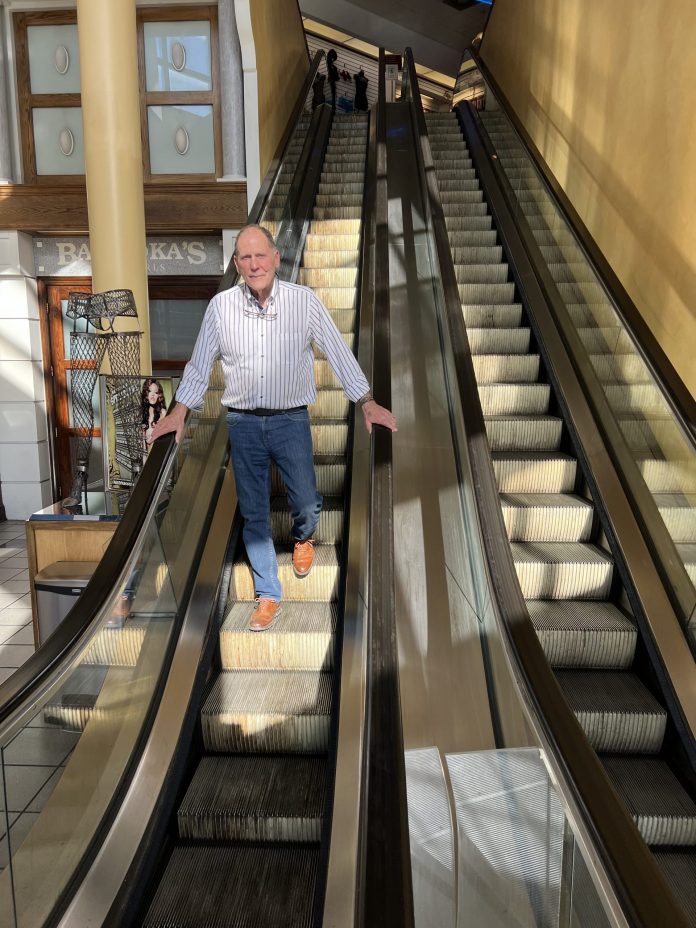by ED Founder Don Waitt
The Founders Interview
A conversation with
Dick Snow
Of Bazooka’s Showgirls & the Kansas City Market
Interview and story by ED Founder Don Waitt
(NOTE: This story appears in the January 2024 issue of ED Magazine.)
N
ecessity, they say, is the mother of invention.
Or another way to put it is: there’s more than one way to skin a cat. And when it comes to skinning cats, figuratively that is, Dick Snow is somewhat of an expert. You cannot have operated in the world of adult entertainment, particularly in the highly religious and conservative Midwest, for more than four decades without finding creative and ingenious ways to keep Big Brother out of your business.
Like videotaping your entertainers dancing naked.
Then showing those videos on a screen next to the mainstage while the entertainers in the videos dance fully clothed on the stage.
To thwart a state law outlawing nude dancing after midnight.
Take that Big Brother.
Here’s the back story.
Dick Snow owns Bazooka’s Showgirls in downtown Kansas City, Missouri. The club has been open since 1992, although Snow was involved in the adult theater business for many years before opening Bazooka’s, so he was no neophyte when he started his stripclub.
The problem began in 2005 when Missouri passed legislation outlawing full nudity in clubs where alcohol is sold; set the minimum age limit for both customers and entertainers at 21; and severely curtailed dancer-customer interaction, mandating dancers to wear pasties and stay 10 feet away from customers.
At the time Snow was quoted as saying of exotic dancing, “You may not consider it high culture, like the ballet, but it’s part of the culture.”
The state had to revamp the 2005 legislation in 2010 because of some shenanigans on how it had been passed. Snow and other adult venue operators, through local attorney Dick Bryant, fought the legislation, both the 2005 version and the 2010 version.
But in 2011 the Missouri Supreme Court ruled that stripclubs and other sexually themed businesses must abide by the 2010 state law that banned nudity and alcohol, and touching between scantily clad employees and customers. Snow was already running Bazooka’s as a non-alcohol bar, but the state law also prohibited sexually-oriented businesses—like ones that had nude dancers on stage—from operating between midnight and 6 am.
To stay open past midnight, Snow came up with the clever idea of showing videos of the club’s nude and semi-nude dancers on large, flat-screen televisions adjacent to the stage. So while a dancer performed live with her intimate areas covered, as the law required, a video of the same dancer—with those areas exposed—appeared on the screens.
Snow was quoted in the local newspaper as saying, “We’ve always been in the entertainment business. This adds to our entertainment. The customers like it. Sometimes we get applause.”
Snow called the video screens “Bazooka’s TV,” adding, “There is some full frontal nudity in these videos, but there’s full frontal nudity in every (movie) theater in the city.” Added attorney Bryant, “The projection of the images of the nude dancers fully complies with the statutes and the U.S. Constitution.”
Best of all, a spokesperson for the Kansas City Police Department said the department had received no complaints about Bazooka’s videos and said it did not appear that the establishment was violating any local or state laws.
Mission accomplished.
Cat skinned.
* * *
WAITT: Let’s start at the beginning. When and where were you born?
SNOW: I was born in 1948 in Coldwater, Michigan. I was raised just outside of Battle Creek, just like Harry was.
Harry is Harry Mohney of the Deja Vu club chain. Snow was influenced, and impressed, by Mohney, and he mentions him several times during this interview.
Snow’s father was a mechanical engineer and the family moved often, from Utah to Colorado and back to Michigan. Snow has four brothers and sisters, though one of the sisters has passed away.
“We were pretty much under the radar. We didn’t make a lot of noise.”
WAITT: Was there any interest on your part to follow in your father’s footsteps as a mechanical engineer?
SNOW: No, I was an English major. I wanted to be a writer.
WAITT: Your last name is Snow. Is that short for something? I’ve never heard that name before.
SNOW: My last name comes from an American Indian. My great great great grandfather was a full blooded Ojibwa, and his name was Snowbird. When he became a Christian, he changed his name to Isaac Snow.
WAITT: So you have some Native American blood?
SNOW: Oh, very little.
WAITT: Did you have any hobbies growing up?
SNOW: I did not play sports. My parents didn’t give me an allowance, so I always worked. I started at 10 with a paper route. And I did busboy work and I had a little cleanup job on a construction site.
WAITT: Did you go to college?
SNOW: I went to Wayne State University in Detroit. Earned a degree in English.
WAITT: What was your ultimate goal in getting an English degree? To become a professor or a journalist?
SNOW: A writer.
Going into this interview, here’s what I knew about Dick Snow:
He owns Bazooka’s Showgirls.
He drives new Volvos.
And he chews gum, a lot of gum.
I knew the first item from seeing his name in the ED Clubs Database and on EXPO attendee badges for many years.
I knew items two and three from a former manager of his.
And that was about it.
Like with the other gentlemen I’ve interviewed for this series, there is woefully little information on the internet about Dick Snow.
But when I told the Uber driver who picked me up at the Kansas City Airport that I was in town to interview the owner of Bazooka’s he smiled a big smile and said, “Oh yeah, I know that club.”
Everyone knows Bazooka’s.
Bazooka’s is to Kansas City what Mons Venus is to Tampa, what Baby Dolls Saloon is to Dallas and what Scores used to be to New York City. It’s an institution. The biggest draws in the city are the Kansas City Chiefs NFL football team, the Kansas City Royals MLB baseball team, the National WW1 Museum and Memorial, Union Station, burnt ends Kansas City barbecue and, of course, Bazooka’s Showgirls. All top attractions, and not necessarily in that order.
Prior interviewees for this series have all been club chain owners. Dick Snow is the first single club operator to be part of the ED Founders Interview Series. But he certainly deserves to be included, because single club owner-operators make up the vast majority of the adult nightclub industry. The battles they have fought in markets from coast to coast have helped build the industry into what its is today. What Snow does have in common with the previous interviewees, though, is that he has been in the adult entertainment industry for a long time, more than four decades.
WAITT: How did you end up in the adult entertainment business?
SNOW: I was working in Detroit as a salesman for a heating and air conditioning company. It was a commission job and I ended up owing a lot of tax. So I sold a couple of big commissions, paid off my taxes, and my wife and I moved to Denver. My father had always been a motion picture projectionist on the side, so in Denver he got me into the projectionist union. I was an officer in the union and the assistant business agent and I got to know all the guys in the union. A couple guys had leased a neighborhood theater and turned it into an adult theater. It was famous, the Bluebird Theater on Colfax. I went to work for them and then they leased a big 2,000-seat theater downtown. We had Spanish language films on the balcony level and adult films on the main floor.
Then they leased a theater here in Kansas City in 1979, the Dove Theater at 33rd and Main. They were having trouble finding a manager. So I said, I’ll fly out there and run it for awhile while and train a manager, then come back to Denver. I got out here and I kind of liked it, so I said, ‘Hey, I’ll stay out here and do this if you want.’ And they said, ‘Okay.’
Back in those days, there was no home video, so if you wanted to see an adult movie, you had to go to a movie theater. We were doing some pretty good business here in Kansas City. Then we bought the Strand Theater here around 1980. And that’s when I became a partner with them (one of whom was Bill Stolar who became Snow’s lifetime friend and business partner). We would have feature entertainers perform at the Strand for $600 a week. I booked them through Rita Bane at the Continental Theatrical Agency. They’d drive in and stay in a little apartment above the Strand. I was running two dancers and a feature act. So right away, we were doing nude dancing with lap dances. They’d go out in the theater and do lap dances.
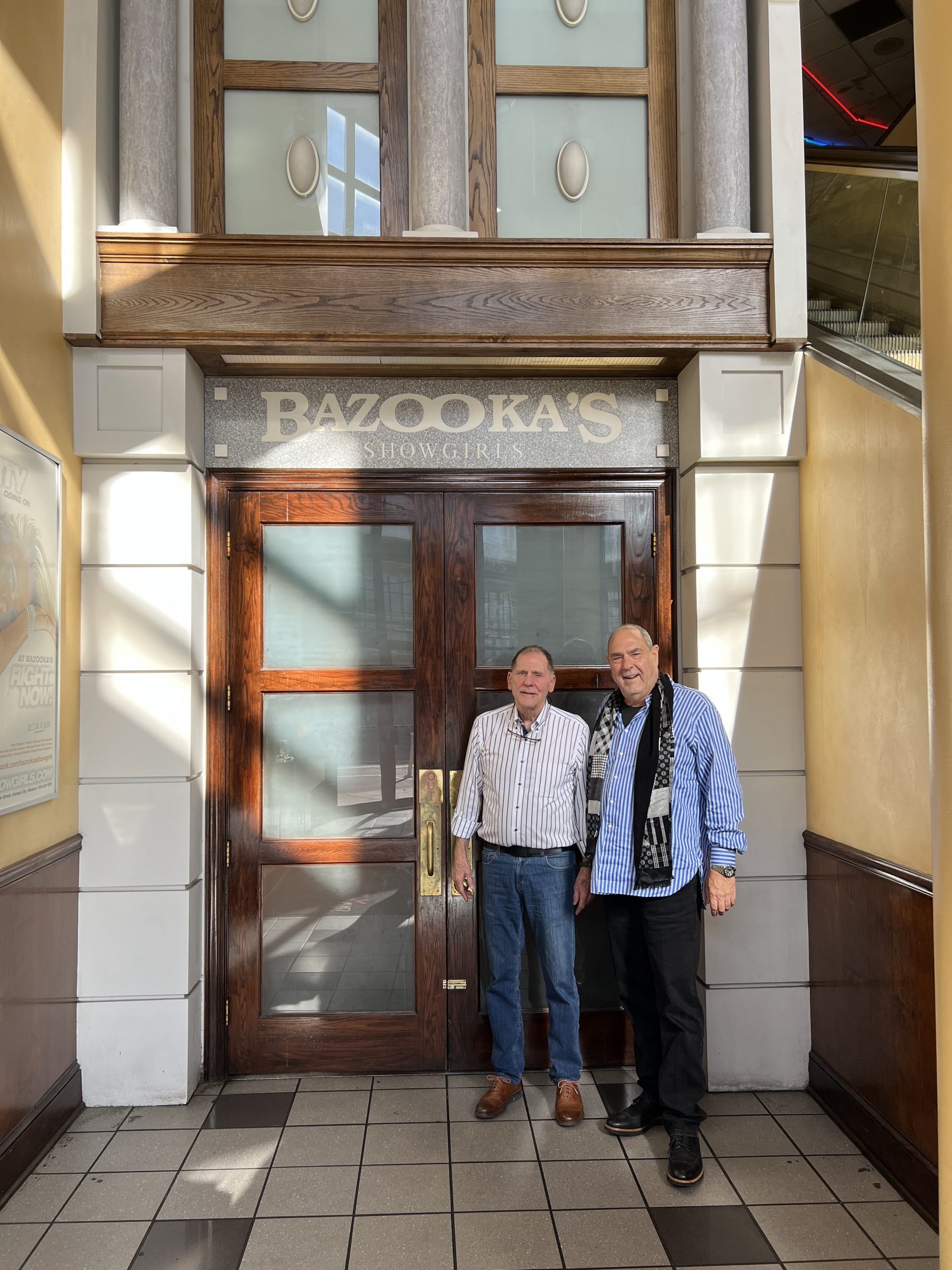
WAITT: And the city didn’t object?
SNOW: They didn’t really know. We were pretty much under the radar. We didn’t make a lot of noise. Over at the Dove Theater we were occasionally bringing in porn stars like Marilyn Chambers. Back then the newspaper was the 900-pound gorilla when it came to advertising. They wouldn’t take our ads, so we hired a public relations firm and finally got them to take our ads. For quite a few years they were running two-column, five-inch ads for adult movies on the movie page.
WAITT: You couldn’t do that now.
SNOW: Oh no. Later on we moved the dancers from the Strand over to the Dove, and I opened a gay theater at the Strand.
WAITT: You didn’t ever want to go back to Denver?
SNOW: No. I’ve been here since 1979.
WAITT: Did your parents or siblings have a problem with you being in the adult entertainment business?
SNOW: No. My father had been in the movie business for years. It was just the regular movie business when we first got into it.
Snow and his partners were buying adult movies for their two theaters from different distributors. They soon opened their own sub-distribution company for the Midwest market. And they started making their own adult films. Snow pulls out scrapbooks with photos from the film sets of those adult movies. As a writer he was in heaven, getting to write the scripts and helping with the direction and production. They made six feature-length adult movies, all shot on 35 millimeter film. “We had a ball,” says Snow.
WAITT: So when and how did Bazooka’s open?
SNOW: That was in ’92. The theaters were not doing well. Our sales were going down because home video had hit. We had a few dancers while the movies were showing, but it wasn’t the same business; it wasn’t an adult nightclub. My partner was Bill Stolar. Everything I did, we did together. Even though he was based in Denver and I was based here, all the projects that I’m speaking of he and I were involved in as a team.
WAITT: Is he still alive?
SNOW: He’s semi-retired, but we still talk every day. So, our two theaters, the Strand and the Dove, aren’t doing well. Bill gets a call from an old friend of ours who used to be the president of the Adult Film Association, a guy named Dave Friedman, famous guy in the business. And he said, “You guys ought to go up to Seattle. Harry Mohney and Roger Forbes are doing something up there that might be of interest to you.” So, we got on a plane, went to Seattle, and found the Deja Vu club up there. That was in ’90 or ’91. We spent a couple days studying what was going on there. We came back to Kansas City and turned the Dove Theater into Bazooka’s Showgirls, and we pretty much just ripped off Harry’s system.
WAITT: How long before the club took off?
SNOW: Oh, immediately. People were standing in line down the street and around the block before we even opened at noon.
WAITT: Why is that? Were there no other stripclubs around?
SNOW: There were no fully nude clubs around. In Missouri, they pretty much had to have swimsuits on. So the customers were literally standing and waiting in line; it was one person allowed in only when one person came out.
WAITT: How many people could the club hold then?
SNOW: About 70 people. We had kept half of the theater open because we didn’t know if it was going to work. So after two weeks, we said, “Tear that damn theater out.” We brought the crews in and made it all one place.
“I do worry about the economy not providing enough people with extra money to go to a stripclub.”
WAITT: Who came up with the name Bazooka’s?
SNOW: I did.
WAITT: That’s also an unusual name.
SNOW: With Bazooka’s you have boobs, the gun and the bubblegum. It’s just got a lot of resonance. And I added “Showgirls” because that’s what Harry did with Deja Vu Showgirls!
WAITT: The club has always been nude, no alcohol. Did you ever try to get alcohol into the club?
SNOW: We made inquiries, but there was no way to get it done in the city. It just wasn’t going to happen.
WAITT: Did you consider going with alcohol and covering up the dancers?
SNOW: Why would we? It just didn’t make any sense. We were doing fine. Later on, I ran a restaurant and bar next door. So I know about liquor costs. If you’re running a juice bar, you don’t have a lot of overhead. Not that I wouldn’t have gone alcohol if it had been available (for a nude club). If it was available, all in all, the negatives of the cost of alcohol are outweighed by the revenues from the alcohol. The bottom line is I’m sure it’s probably better. But, you know, you got what you got.
When the Dove Theater became Bazooka’s Showgirls it was located downtown at 33rd and Main. But then the city decided that the Dove’s real estate, along with other adjoining parcels, were needed for downtown expansion so they tried playing the eminent domain card in 1996. If they thought Dick Snow was going to just roll over they—pardon the pun—don’t know Dick.
SNOW: They wanted to put a Home Depot and a Costco in there. We fought them for a year. I used (attorneys) Paul Cambria, Jerry Culver and Dick Bryant. Dick is the one who finally got it done for us. We had brought in these big, out of town lawyers and the city didn’t like that. But Dick, he’s local, and he’s a good negotiator. First we had to win our federal court case that they had to pay us for the business because they couldn’t just buy the building. So once that was settled in federal court, then a negotiation started and Bryant got us a big chunk of cash and the city told us to find another property downtown, and if it qualified, they would zone it for us. We found this property (also downtown at 1717 Main St.) and they zoned it. I give a lot of the credit to Dick Bryant.
WAITT: Do you think part of Bryant’s success is because he’s a hometown attorney?
SNOW: It absolutely helps. Plus, he has a real skill in negotiating. He’d prefer we all come to an agreement, rather than go to court. He’s very good at that. More than once, he has saved our bacon.
WAITT: So, the city had to pay you for the land and the business, and then rezone this property. Did they buy this building for you?
SNOW: We took the money and bought the building. It was an old print shop, and we gutted it right down to the brick. We basically just had the outer shell and we put everything in on the inside.
WAITT: So it wasn’t a matter of the city being magnanimous and nice to you for forcing you to move?
SNOW: Oh, no. In fact, it was the beginning of our problems with them. They brought in people to do secondary effects studies, so we brought in Bruce McLaughlin to do one for us. It went on and on, but Bryant negotiated with them and we eventually came up with an ordinance that everyone could live with.
WAITT: When they forced you to move, do you think the city felt like they could push you around because you were an adult entertainment venue?
SNOW: No, because they also condemned about 40 homes and a bunch of other businesses. They were just slamming everybody.
WAITT: They did that to tax-paying citizens, your own local government?
SNOW: It was an okay neighborhood, but they thought it was a sketchy neighborhood, and so they wanted that to change.
The sign outside Snow’s two-and-a-half story building says, “Bazooka’s Showgirls,” but once you step inside the building you find a number of businesses. On the ground floor is Bazooka’s Showgirls, a non-alcohol, nude stripclub. An escalator takes you up one-and-a-half floors to the second level which houses an adult boutique selling lingerie, dancewear, and adult novelties; a small adult theater with seating; and an arcade with a half dozen peepshow booths. Also on the second floor is Snow’s office, which is large and comfortable with huge windows letting in the sunshine. It’s one of the few stripclub offices I’ve been in that actually has windows and doesn’t feel like an underground bunker.
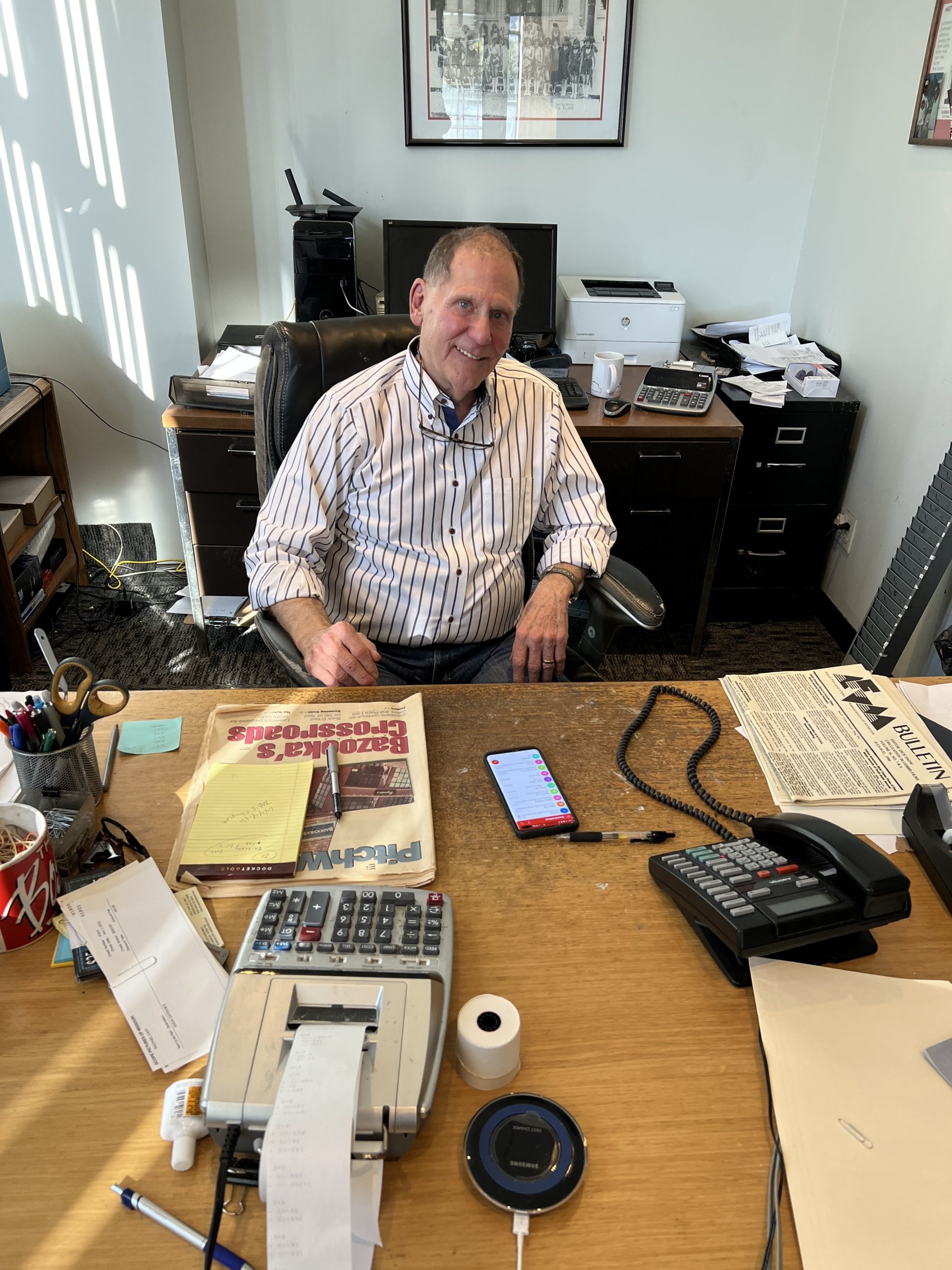
in his office
WAITT: Your complex here is very unique. It’s basically three businesses in one. How many square feet is all of this?
SNOW: About 12,000 square feet, 6,000 per floor.
WAITT: And you have an escalator from the first to the second floor. I have never seen an escalator in an adult nightclub before. Most adult clubs are on the outskirts of downtown. You are smack dab in the middle, just a few blocks from the T-Mobile Center.
SNOW: Right. But there was no T-Mobile Center when we moved here. Thirty-one years ago this was just a kind of rundown, industrial warehouse type of area. It wasn’t the super trendy neighborhood that it is now.
WAITT: Even though it wasn’t a trendy area when you first moved in, weren’t there still complaints from area businesses that a stripclub would attract the wrong type of people?
SNOW: There was a lot of resistance to us moving here by other property owners. They said if we moved in, crime would increase. And it did not happen. The guy who owned the building across the street, which was vacant at the time, he fought his tooth and nail. Actually, we looked at that building to buy it, and realized it didn’t have parking, so we passed on it and bought this building instead. But, oh man, when we first opened, he’d be on his upper floors looking at our customers with his binoculars. It was nuts.
WAITT: Is he still around?
SNOW: Yeah, he’s still around.
WAITT: When you first opened, this was an industrial area. What was the customer traffic like then, and what is it like now since you are considered to be in a cool, hip area?
SNOW: I don’t think the amount of traffic has changed. But there have been changes in the customers. That has to do with economics. We don’t have as near as many young customers as we used to have. Young people are having a hard time making money. There are no blue collar guys anymore, because there are no jobs for them. We’re not having the young 18- to 25-year-old blue collar kids anymore. It has moved into an older, higher-end customer.
WAITT: So the question is, when these older people are gone, what’s going to happen?
SNOW: Well, young people get old. So you just have to wait. But I do worry about the economy not providing enough middle class people with extra money to go out to a stripclub. I worry about the economy bifurcating, with the rich getting richer and the poor getting poorer.
It is as this point as I am transcribing and editing this interview that I have to stop and look up the definition of the word “bifurcate.” I have to look it up, even though I have a journalism degree and have been a newspaper reporter, magazine writer, editor and publisher for more than 45 years. But that’s what happens when you talk with Dick Snow. He may be a stripclub owner, but he also has a bachelors degree in English, is an avid reader and writer and is prone to use words that will have you reaching for a dictionary or the Google search bar. Bifurcate, by the way, means to divide into two branches or forks.
SNOW: I worry about it, because as an adult club owner, we’re all about extra income. We’re not about food or shelter. We’re about extra income to have a fun night out. That’s the reason we have lost our young people. They don’t have the money that they did 20 years ago.
WAITT: They don’t have it, but they also have more things to spend it on now.
SNOW: I’m not sure I’m buying that, but that might be true. Or maybe they’re just not as interested in naked women. Because, well, there are a lot more naked women on your phone now.
WAITT: Bazooka’s has been here for over 30 years, but on the outside it looks like a brand new building. The exterior is beautiful red brick, and the Bazooka’s sign is small and tasteful. There is no garish neon. It looks more like a law office than a strip club. Did it always look like this, or are you constantly renovating it?
SNOW: It has always been a red brick building. All these windows are new. We have strict sign regulations here. We are only allowed 50 square feet of signage. Now I could outline the building in LED lighting. But I don’t think that really helps your business. I never wanted to go that way. I always felt low key was better because of the issues that you have with city government. You don’t want to poke a stick in their eye if you don’t have to. And we never had to.
I used to spend a lot on advertising on TV, on the radio, on billboards, in newspapers. Radio was big back then before everybody started streaming their music. That’s the real problem we have now with advertising. How do you advertise? That’s partly why I stopped booking feature acts, because you can’t get the word out in a timely way. You can go on Facebook, if you can get on there, but that won’t generate your sales. I remember the days when you’d be at a stoplight with your car windows down and the guy on this side and the guy on the other side were listening to the same radio station.
“These might be problems that are unique to our business, but every business has problems that are unique to them.”
WAITT: You are one of the founders of the Missouri Association of Club Executives. What necessitated you guys getting together?
SNOW: It was the Community Decency Act in the state legislature. We fought it for seven or eight years.
WAITT: How hard was it to get the other adult club owners on board?
SNOW: In Missouri, the problem is that there are three metro areas: Kansas City, St. Louis and Springfield, which is where the majority of the clubs are. However, all the clubs in St. Louis are actually in Illinois. So that left us going after tiny clubs in little towns across the state, and also adult bookstores. It took us awhile, but we got in touch with them all, and got them involved, even though we didn’t get much money from them. They’d come to the meetings, and we hired a lobbyist and I was in Jefferson City (the state capital) four or five times a year lobbying with them.
WAITT: Would it have made sense to do ACE of Missouri/Kansas and bring Kansas in, or are the laws too different?
SNOW: Well they weren’t being threatened in Kansas at that time, so it was hard to get them involved. I was in touch with some guys in Kansas and a couple of them showed up at our meetings. Getting money from them is the real problem. That was always a struggle. Basically, there were just two or three of us that supported Missouri ACE financially, and one was a big bookstore out on the east side of town that put up a lot of money.
And, the question is always, after having spent all that time with those legislators, who are snakes and just tell you what you want to hear and they don’t give a shit, would it have been wiser not to do anything? Maybe it (the Community Decency Act) would have just died, without our bringing attention to it. Because it eventually passed. But when it comes to really enforcing it, nobody cares. On a statewide level, it only passed in two states: Missouri and Ohio. There are lots of clubs still operating in Ohio. There are lots of clubs still operating in Missouri. I don’t think anybody in any jurisdiction anywhere in the state has ever tried to enforce this.
There is a Dick Snow in just about every major city in the United States. A man, or a woman, who 30 to 40 years ago decided to open an adult nightclub or an adult movie theater and then spent the next two decades fighting city hall, the state, the church and citizens’ groups to keep their business open. The big club chain operators get most of the glory and the attention for being pioneers of adult nightclubs, deservedly so, but all of those individual operators who also fought on the front lines are the unsung heroes of our industry. They had no road map to follow, and there were few, if any, attorneys who specialized in First Amendment issues back then. They were at the forefront of the battle to operate an adult venue, and the hard work they did, and the money they had to spend and the sacrifices they had to make paved the way for other adult venues to open in their city in the following years.
WAITT: Your attorney Dick Bryant said that you always look for ways where you can coexist with the city because it’s better than fighting them head on.
SNOW: Oh, for sure. I mean, why make it a fight? The truth is most people in city government don’t care (about adult nightclubs). They’re fine with it actually. There are just a few of ‘em that are bent that way. You just want to make friends with as many people as you possibly can and try to be as good a citizen as you can. After we moved to this location, we would get frequent vice raids, because they were buying the bad hype of the neighborhood group that was against us. So, they would come in, 20 to 25 police officers swarming into the place. They’d handcuff the girls, put them in a paddy wagon, take them down to the station, and I’d have to go down and bail them all out. Finally, Dick wrote them a letter and said, “Look, this is prior restraint. You better quit doing that or we’re going to sue the shit out of you.” And they quit doing that.
WAITT: Bazooka’s is kind of a household word here in Kansas City.
SNOW: Everybody knows Bazooka’s. That’s because of all the advertising I did. I’m going to show you one of my TV ads. Getting on TV with an ad is tough. Getting on Facebook with an ad is tough. Getting on YouTube with an ad is tough. But we managed to do it. Let’s see here.
Snow, who is dressed casually in blue jeans and a long-sleeved, button-down shirt, gets up from his desk to go to a computer that has videos of TV commercials he produced in the past for the club. In one clip, a cheesy guy who looks like a used car salesman and has his hair greased back in a pompadour says, tongue-in-cheek, of the dancers at Bazooka’s, “Those girls, they smell like cotton candy. So I advise you to stay away. This is no place for you, son. Just stay at home and play your video games, ha-ha-ha!” The actor in the TV commercials was actually the club’s DJ.
Snow gets up several times during the interview to find a newspaper clipping or a promotional piece or photos of himself and Stolar and the club over the years. Decades of memorabilia have accumulated in his large office, but he doesn’t really need those items for reference. He may be in his mid-70s but Snow remembers every detail, every legal battle, every special promotion from the past four decades. He thinks before he answers questions, and his answers are delivered in an un-rushed manner. He leans back in his chair a lot and about every 30 to 45 minutes he absently takes a piece of gum from his mouth and tosses it into the trash, and then pops a fresh piece in.
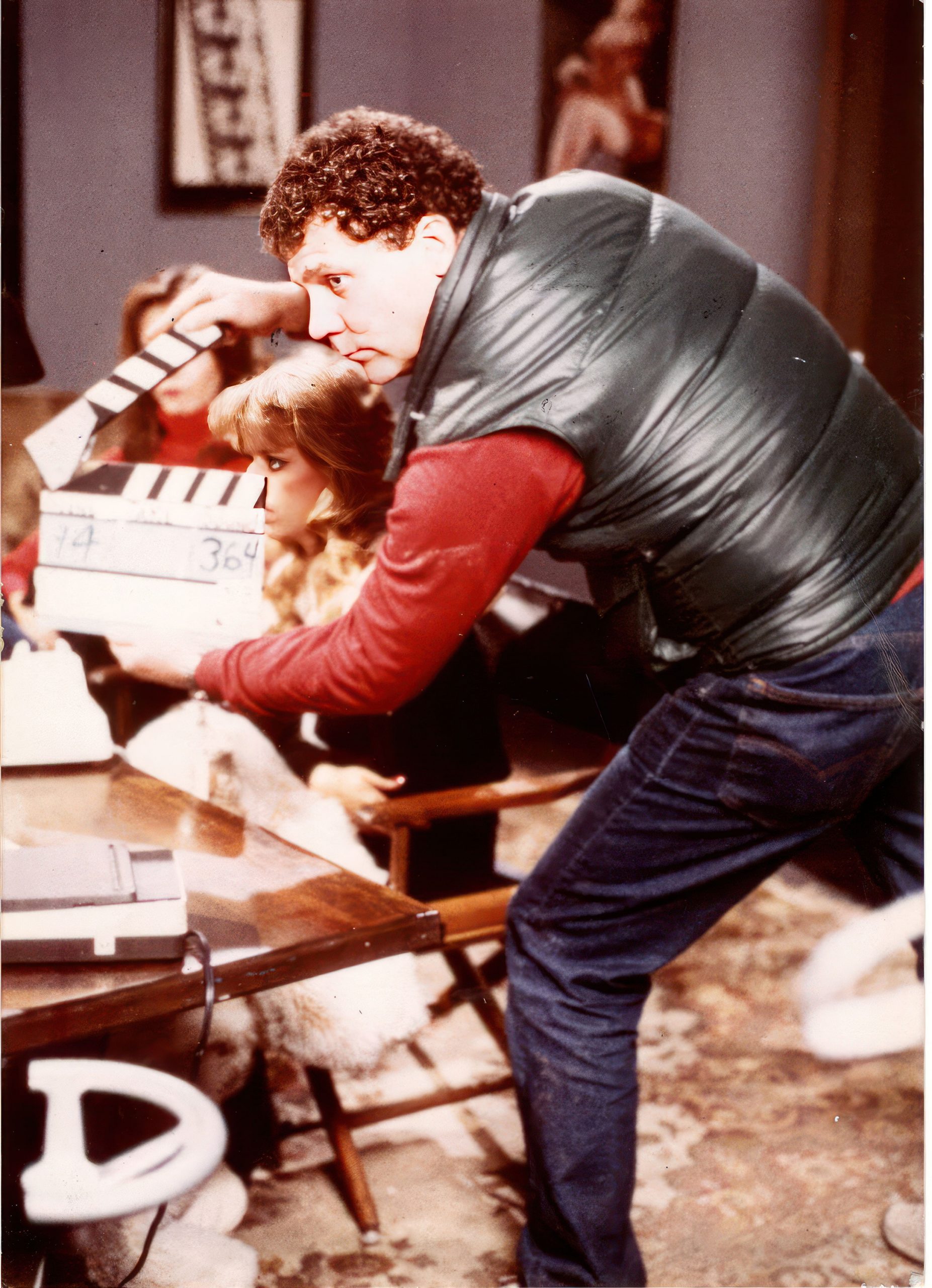
SNOW: Anyway, we got those on TV. Now we can use them on YouTube.
WAITT: Bryant said you were part of an informal task force that met with city officials to draft what are now the current adult codes to everyone’s satisfaction. He said, “It saved everybody hours and hours of legal battles.”
SNOW: That’s his arbitration skills.
WAITT: I always wonder, in those meetings with city officials, let’s say they’ve gone on for a while and you guys have ordered some dinner, and at this point everybody’s almost a little friendly …
SNOW: Honestly, from the get go, we were kind of friendly. We weren’t enemies.
WAITT: … but my question is, if I was part of your team, I’d say to those city officials, you know we’re here simply because we’re just trying to keep our business open. We’re trying to make money, feed our family, send our kids to school, etc. That’s why we are here; but why are you guys here? You know that we’re not doing anything wrong, so again, why are hassling us?
SNOW: It’s because they have constituents that are putting pressure on them. That’s all it is. And they might be a minority, but they’re making a lot of noise and that’s what’s motivating them. They don’t really want to be there. They don’t really want to do it. They don’t really care. It’s crazy. That’s how it was with the state legislature. They didn’t care.
WAITT: This isn’t a religious crusade for you. You’re running a business, just like the guy who sells pizzas, the guy who sells cars. Do you ever bemoan the fact you have to jump through so many more hoops to earn an honest dollar than other businesses out there?
SNOW: I guess I’m used to it. It just comes with the territory. This has been the case since day one.
WAITT: Are you saying you don’t consider it an undue hardship because you’re just used to it by now?
SNOW: Well, when it’s going on, I do consider it a hardship. But, in retrospect, we persevered. These might be problems that are unique to our business, but I think every business has problems that are unique to them. Back in the movie theater days when the local police were raiding the theaters and seizing movie prints, we used to do things like have two projectors set up. One would be a softcore movie, and one would be hardcore movie. When the cops came to the door, we’d change over to the softcore movie, and put the hardcore movie up on the roof. That’s just part of what we’ve been doing all these years.
WAITT: A stripclub executive once told me he welcomed all of the city and police problems adult nightclubs face because, he said, “If this shit was easy to do, everyone would be doing it.”
SNOW: He’s right. It’s a barrier to entry.
WAITT: Adult club owners have to be creative. Like when they passed the law where you couldn’t have nude dancing after midnight so you shot videos of your entertainers dancing nude and showed them on screens next to the stage where they then danced clothed. Where did you get that idea?
SNOW: I don’t think it was hard to come up with that idea. That just seemed to be the natural solution, maybe since I had been in film production and had made adult films. We had fun with it. We did green screen stuff. We made it as interesting as possible.
WAITT: What was the reaction from the dancers?
SNOW: They knew what was going on.
WAITT: You got great publicity out of it, too.
SNOW: Yes, we got good publicity. We always got publicity. Initially the Kansas City Star was not very friendly to us. But they were driving a lot of business to us because they were writing about how awful our lap dances were. It was the same reporter who wrote all the articles. I always wanted to call him up and say, “Man, thank you very much. You really made my business skyrocket.”
“I’m just not comfortable unless I’m here. It’s a cash business, and you’ve got to keep your eye on the cash.”
WAITT: You go to the Annual Gentlemen’s Club EXPO, and you said you read every issue of ED Magazine. What do you get out of that?
SNOW: It benefits me as a club operator. I’ve been to some great seminars. I like to go to the tradeshow and look at the products. I like to meet up with the people that I know. Without your convention, this would be a very disparate and dispersed industry. Nobody would know anything about anything. The convention is cohesive for the industry. In fact, without that convention, it would not be an industry. It would be just a bunch of independent operators in their own bubble. I like the legal panels and the employment panels. I like them all. And I always read your magazine, because I’m a voracious reader of magazines. You all do a good job.
WAITT: Thank you. We love to hear that. Myself and Publisher/Editor Dave Manack always wonder if anyone is actually reading the articles we’ve been writing for 30 years. We don’t hear from the readers enough.
SNOW: No, no, I read every page in every issue. I love it.
WAITT: You are 75 years old now. Describe your typical work day.
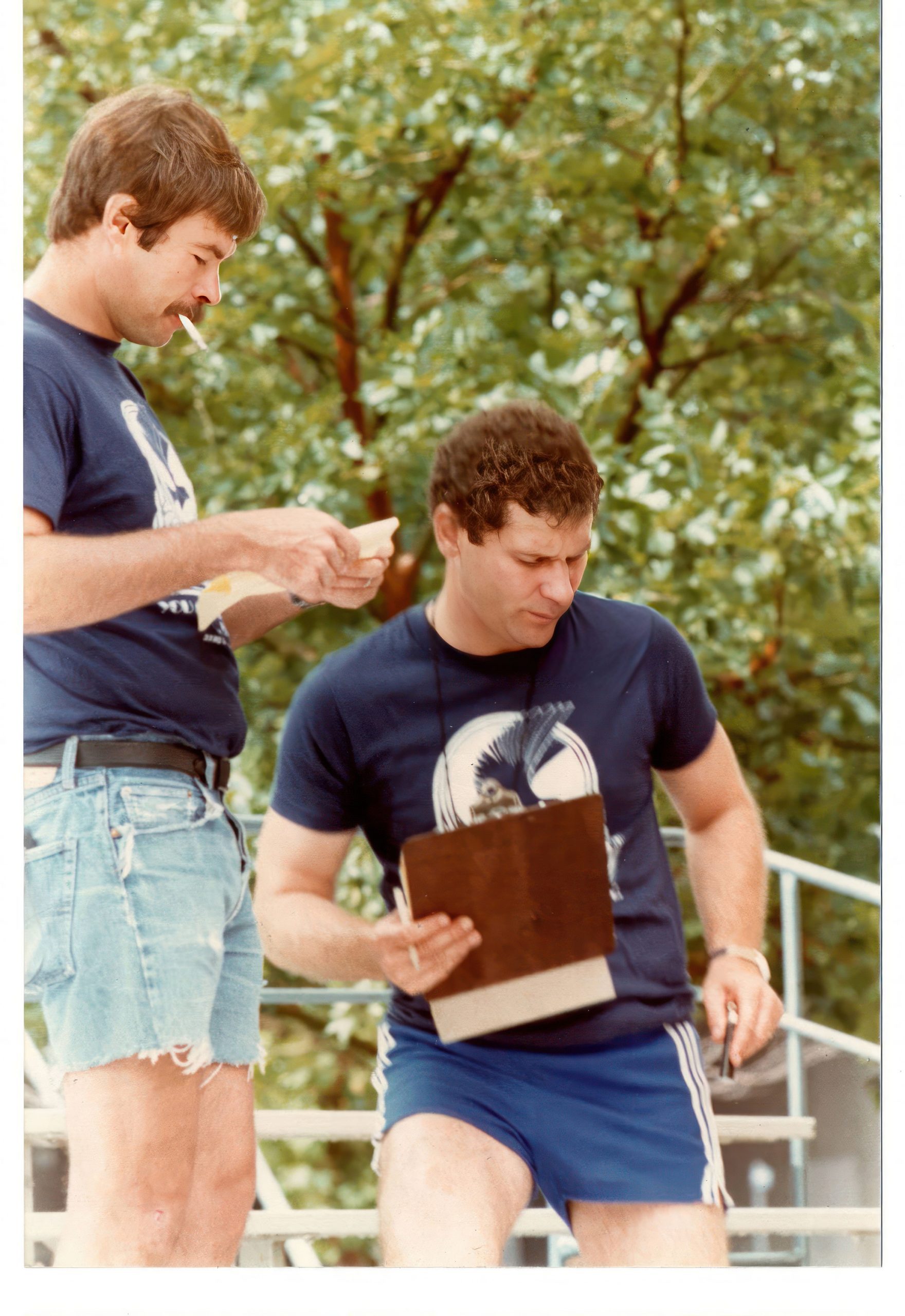
SNOW: I come it at 7 am. Go over the books. Do all the administrative stuff you have to do. I talk to my managers every day. I talk to most of the staff at least once a week.
WAITT: And you do that five days a week?
SNOW: I work five days during the week, then a half a day on Saturday and a couple hours on Sunday.
WAITT: Seven days a week? Why?
SNOW: I’m just not comfortable unless I’m here. Unless I know what’s going on. It’s a cash business, and you’ve got to keep your eye on the cash, too. You know what I mean?
WAITT: I spoke to Sean Simms, who emcees Rio River’s entertainer pageants, for some background on you since he worked for you a number of years. He said the things that stand out are the loyalty of your staffers, and the fact that you always drive a new Volvo and you chew gum nonstop.
SNOW: That’s all true.
WAITT: You have a club manager and you also have a manager for the retail store.
SNOW: I have a retail store manager. I have one main club manager and several assistant managers. I have a daytime manager, Danny Stone and my nighttime manager, Jimmy Rauzi.
WAITT: How long have your managers been with you?
SNOW: Jimmy’s been with me since he was 18 years old. He’s been here 40 years. Danny’s been with me probably 30 years. I know that the biggest problem club owners have is keeping good managers. I can’t imagine how they do it. I have a hard time hiring cashiers, let alone a manager. I can’t imagine the nightmare it must be to hire managers for 10, 15, 30 clubs.
WAITT: Why do you think your managers have stayed with you so long?
SNOW: I’m very big on a positive work atmosphere. I’m big on solving problems right away. I like everybody to be happy to come to work, including my dancers. I have dancers who have probably been here too long actually, but they leave and then they come back and they say, “Oh man, I don’t ever want to work anywhere else.” I try to make it a good work atmosphere. Leave your ego at home and let’s do the job, you know what I mean?
Bazooka’s is open from noon to 1 am Sunday to Tuesday, and from noon to 3 am Wednesday to Saturday. On peak nights the club will have 25-plus dancers working.
And they are all employees.
SNOW: All of our people, including our dancers, are W-2 employees. They are not independent contractors. My dancers are commissioned salespeople. They get a commission on the dance. I set it up that way all those years ago in 1992 because Bryant said I should make them employees. I send out 200 W-2’s a year. I was looking through some files the other day and found a letter from a law firm that was trying to do one of those labor suits against us. As soon as they found out all my people were W-2ed, they just went away.
“All of our people, including our dancers, are W-2 employees.
I send out 200 W-2s a year.”
WAITT: One of the reasons often cited for a club not doing well is because of an absentee owner. A lot of owners either stop coming into the club, or they’re only in there for a short time. Do you think it’s a benefit to the rest of the staff to have the owner more involved?
SNOW: Absolutely. The buck stops here, and I am fair. And I’m vested in it. Your manager’s not vested. This isn’t his whole life.
WAITT: Did you ever want to build a chain of clubs?
SNOW: At one point, in the ‘90s, Bill and I were looking to open other clubs. We wanted to stay in the region, so we looked at Omaha, we looked at Des Moines, we looked at Minneapolis. We even looked at a few far flung opportunities in Maine and Florida. And we just didn’t find one we wanted to gamble on. We did actually have a building in Minneapolis that we made an offer on, but the city of Minneapolis got word that we were interested, and they swooped in and bought the building.
Snow and Stolar may not have opened another adult club, but over the years in Kansas City they also had regular bars, five videostores, a film company and a dot-com company.
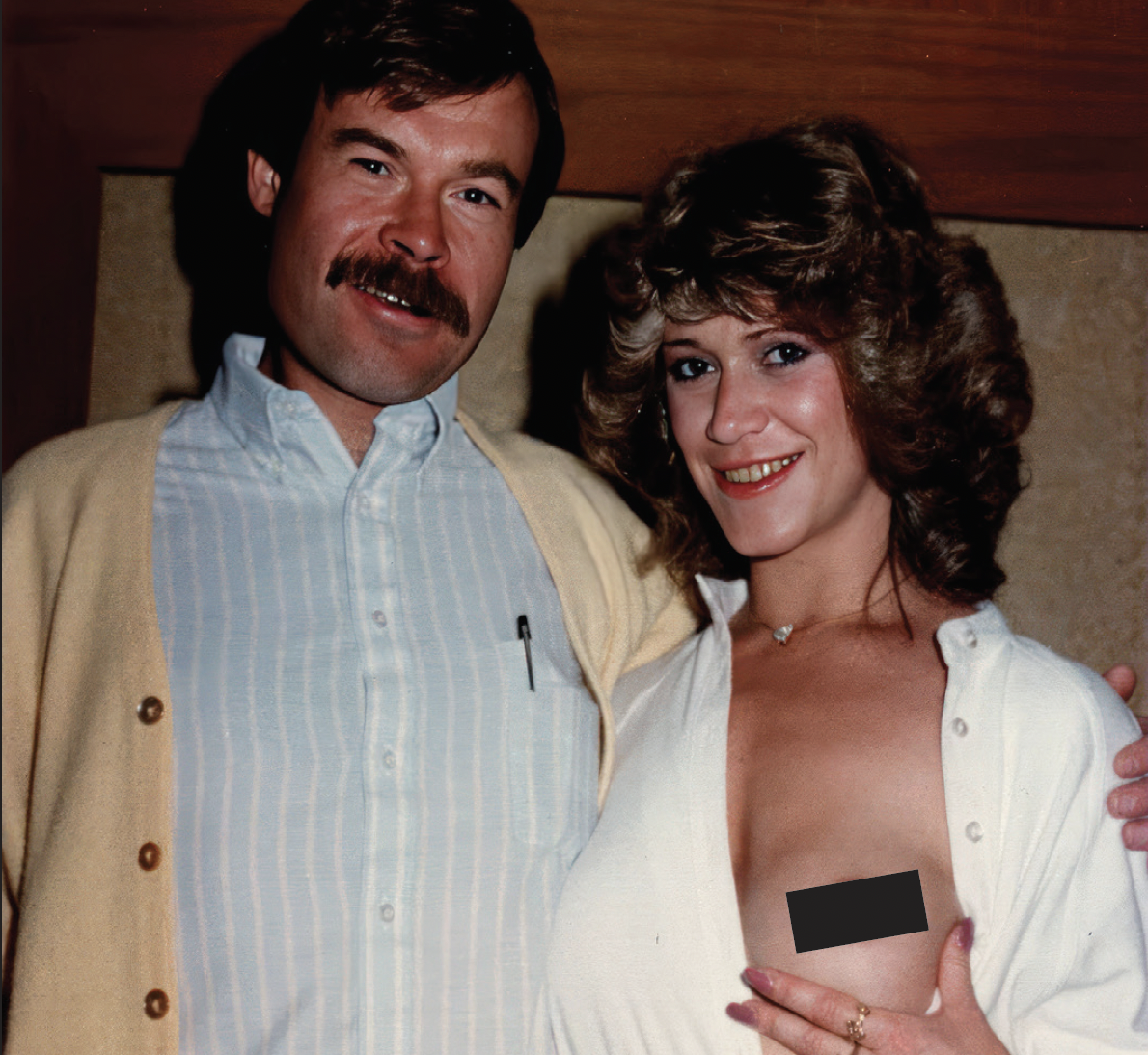
SNOW: We’ve always had something else going on.
WAITT: How do you balance being a hands-on owner with making sure your managers don’t feel like you’re micromanaging them?
SNOW: I am not a micromanager. I want to give my people agency. I definitely want them to make decisions and to come up with ideas. And I try to implement their ideas. Even if they’re bad ideas and we don’t stick with them, we try them out. I’m all about delegating that. One of the reasons that we’re successful is I do not micromanage.
WAITT: When it comes to managers, you can teach someone about the nuts and bolts of running a stripclub, but what can you not teach them? What attributes would you tell other club owners to look for when hiring managers?
SNOW: Look for somebody who can communicate with the staff. As a manager your job is to get people to do what you want them to do. And people have different ways of doing that, and ordering people around doesn’t work very well. Obviously, honesty is important because it’s a river of cash and girls. The other thing is, it’s hard hiring managers because there are a lot of guys who would be really great managers, but their wife or their girlfriend won’t let them work here.
WAITT: Experience is a great teacher. What mistakes did you make when you first started in the adult business that you learned not to make again?
SNOW: I try to forget those. I made a million mistakes. It’s water under the bridge, so move on.
WAITT: The big one, everybody says, is that the initial temptation, because there are a bunch of girls, is to party a little bit too much, which can be counterproductive.
SNOW: Yeah, I didn’t do that too much.
WAITT: Who are some industry people you’ve worked with who’ve played a role in your success?
SNOW: I really like Mike Ocello (formerly of PT’s Showclubs and now with RCI). He helped me out a little bit with Missouri ACE. He was very pragmatic, very straightforward. And then obviously Bill Stolar.
WAITT: What was it about Stolar that made you guys click to be partners and friends for so long?
SNOW: Well, Bill was a gambler. He had the ability to get his hands on money, and I was the guy who made it run. The other thing that works, that helps a lot, was the 500 miles between us. Bill and I still talk on the phone every day. And Bill would come to town once a month.
WAITT: In looking through ED’s Clubs Database, it is interesting to see how many small towns in Missouri all have one stripclub. Towns like Nixa, Pineville, Arnold and Kaiser. And they’ve all got a church, I’m sure.
SNOW: We were up in Omaha one time looking for a club to maybe buy. It was in a little town called Fremont. We go in. There’s four or five farmers in there having beers. And there’s a stage, but no dancers. I said, “Where are the dancers?” and one of the farmers said, “She’ll be in in a half hour.” They had one dancer. That was it.
“Bill Stolar was a gambler. He had the ability to get his hands on money and I was the guy who made it run.”
WAITT: When one thinks of booming strip club markets, you think Florida, Texas, New York. Nobody really ever mentions Kansas City, yet you’ve been here over 30 years and you’ve been successful. And there are other clubs here that have also done well. You have an unusual market because people from another state, Kansas, come over the river to your club in Missouri. What kind of challenges does that give you as an operator having to reach customers in two states?
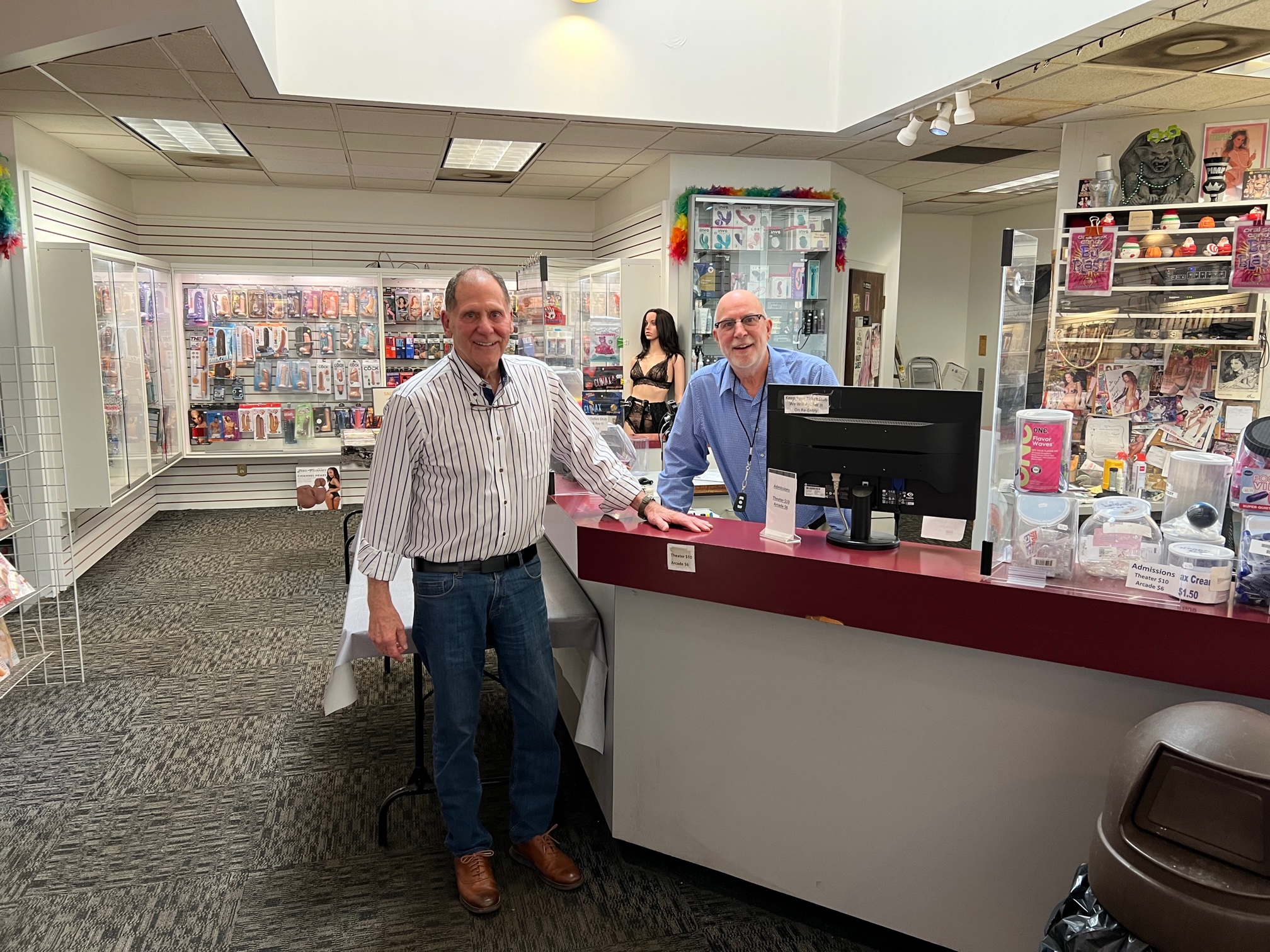
SNOW: There’s not two media markets; it’s one media market. So it hasn’t hurt or helped me.
WAITT: Both Kansas and Missouri are conservative states, right?
SNOW: Oh, hell yes. Worse than Alabama, I’d say. Terribly conservative.
WAITT: So they voted for Trump?
SNOW: Oh yeah, absolutely. I’m not sure they will again, but they did.
WAITT: ED’s Clubs Database has seen a dramatic drop in the number of adult nightclubs operating. Have you noticed clubs closing, and why do you think that might be happening?
SNOW: I have not seen any clubs close around here, but our sales aren’t what they were in the ‘90s. I think we’ve finally rebounded after COVID. It took us a while, but we’re back to pre-COVID grosses.
WAITT: Did you have a mentor or was there someone whose advice and guidance you relied on when you first started in the adult business? You mentioned that Harry Mohney had an impact because you used some of his ideas.
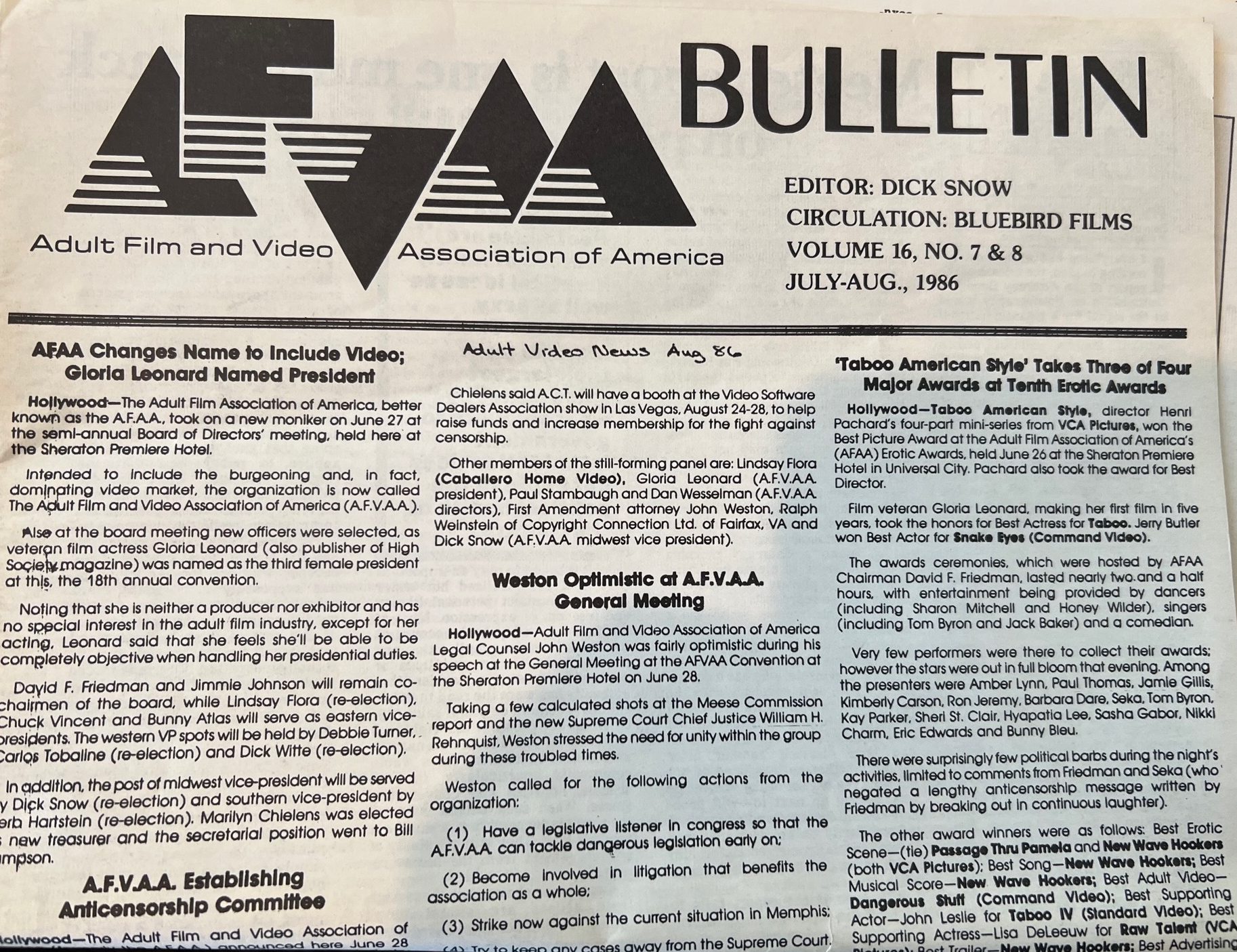
SNOW (laughing): We stole them. We ripped him completely off. Other than that, we were on our own. We figured it all out by ourselves.
WAITT: You used to be very active in booking feature entertainers, but you said you stopped because it was just too hard to get the word out about their appearing at the club.
SNOW: That was part of it, but the other part is there is no such thing as a porn star anymore. The customers just weren’t coming out for the features. My grosses were no different if I had a feature or if I didn’t.
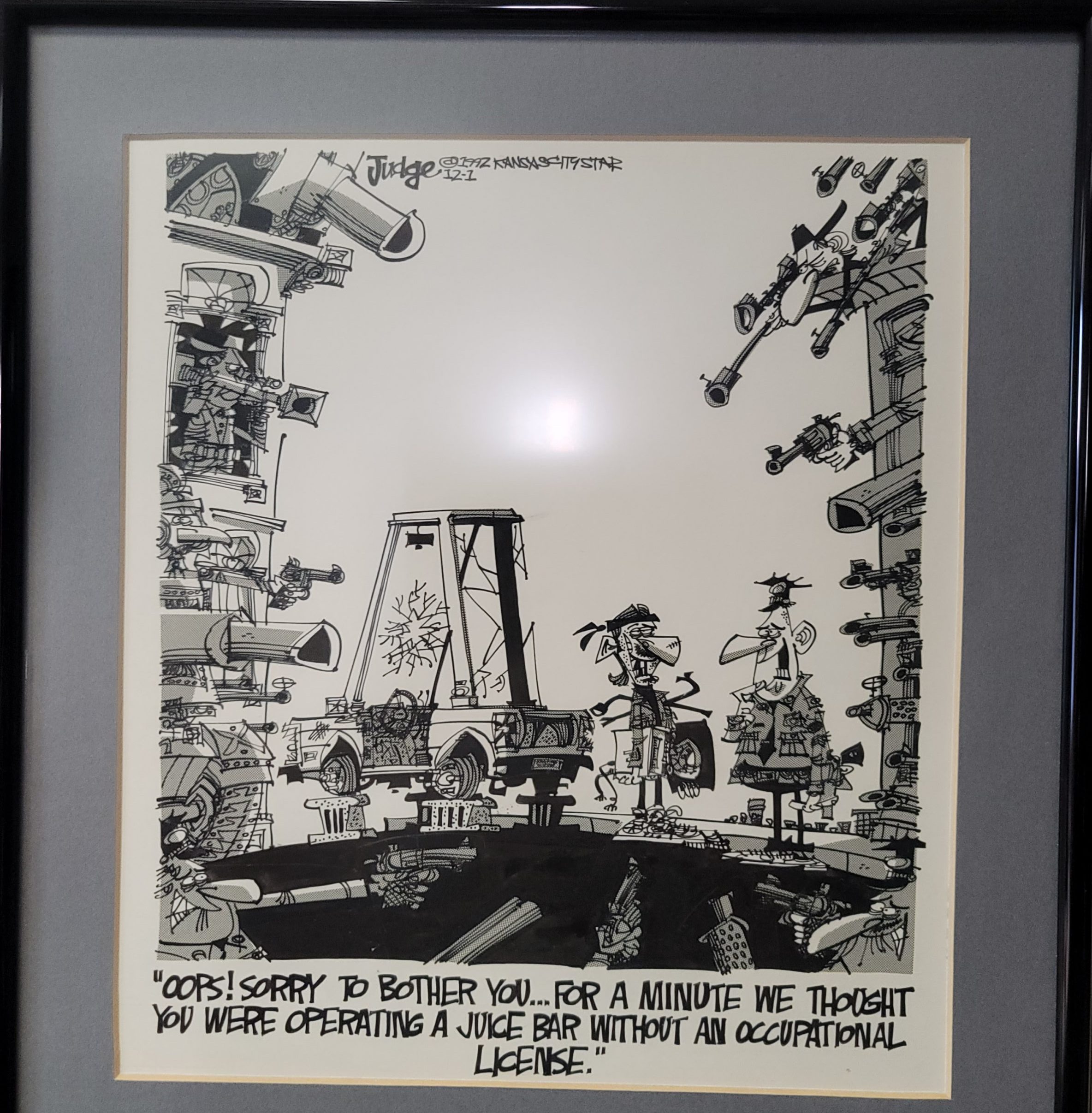
WAITT: Agent Frank Bane from Continental Theatrical said whenever he sent you features you put them on the local radio station with a DJ named Johnny Dare.
SNOW: It’d be me, the feature and the local comedian who was doing the comedy club in the green room with them.
WAITT: Did you go on the air too?
SNOW: I would not go on air. I was just the driver. Lisa Lips was my first feature. She turned out to be a friend of mine for quite a few years.
WAITT: Do you think you’d book features again?
SNOW: Frank’s always trying to get me to book a midget and I would if I could get the word out.
WAITT: The majority of the 1,600-plus adult nightclubs operating today are single-owner clubs. Why do you think most club owners are satisfied with just one club and don’t try to expand?
SNOW: Two reasons. Number One, they’re probably doing okay with the one club. Number Two, they’re probably busy, and they’re just not bent that way to open more clubs. I guess I’m also not bent that way. If I was bent that way, I probably would’ve opened some more clubs. I’m completely happy not having to drive or go all around the country and check on my clubs and worry about my managers. That doesn’t appeal to me.
“I’m completely happy not having to drive all around the country and check on my clubs. That doesn’t appeal to me.”
WAITT: You’ve been very successful with the boutique. When did you add it to your complex here?
SNOW: First of all, the boutique for many years was a video store. We used to do seven to eight thousand dollars a week in video rentals and sales. Then video streaming sucked that out of us, so that was when we went into the novelty and apparel business.
WAITT: When you bought this building, was the escalator here or did you put it in?
SNOW: We put it in.
WAITT: Why an escalator? I don’t think there’s another adult club out there that has an escalator.

SNOW: We did it for the customer’s convenience. It’s pretty high; the second level is one and a half stories up. Would you walk up those stairs? No, you wouldn’t. The upstairs (the boutique, theater and peepshows) generates about a third of our income, with very low overhead.
WAITT: So the boutique and theater is a profit center? It’s not just a loss leader to get people into the club?
SNOW: Oh no. In fact, it’s two different groups of people. We capture two entirely different customer bases.
WAITT: So there’s little crossover?
SNOW: Not much.
WAITT: For the boutique, what percentage of the customers are male versus female?
SNOW: For the whole second level, I’d say it’s 70-30 female to male, maybe 60-40. We sell a lot of apparel to women.
WAITT: I’ve always wondered how adult retail stores know what products to order.
SNOW (laughing): We order everything that’s available, and just see what sells. If it sells, we reorder it.
WAITT: Some stripclubs have enough room that they could put a boutique in, but I think their concern is they don’t know how to order the merchandise, how to inventory it and how to market it. Is it something you’d encourage other club owners to look at?
SNOW: It depends. By putting it on two floors (the club on the first floor, and the boutique on the second floor), it’s psychologically two places. And that works for us. If it’s psychologically one place, I don’t think that works. Because they are two entirely different customer bases. So with the boutique up on the second floor, for the club guys, it’s out of sight, out of mind, they don’t even care about it. And our upper deck customers, they know where to come (up the escalator). But I would not put a boutique in the lobby of my stripclub.
I also believe we needed all three elements to make it work: the theater, the arcade and the boutique. They all are symbiotic. We are beginning to get civilians in here, other than dancers, buying lingerie and apparel. That was not overnight. That took a while.
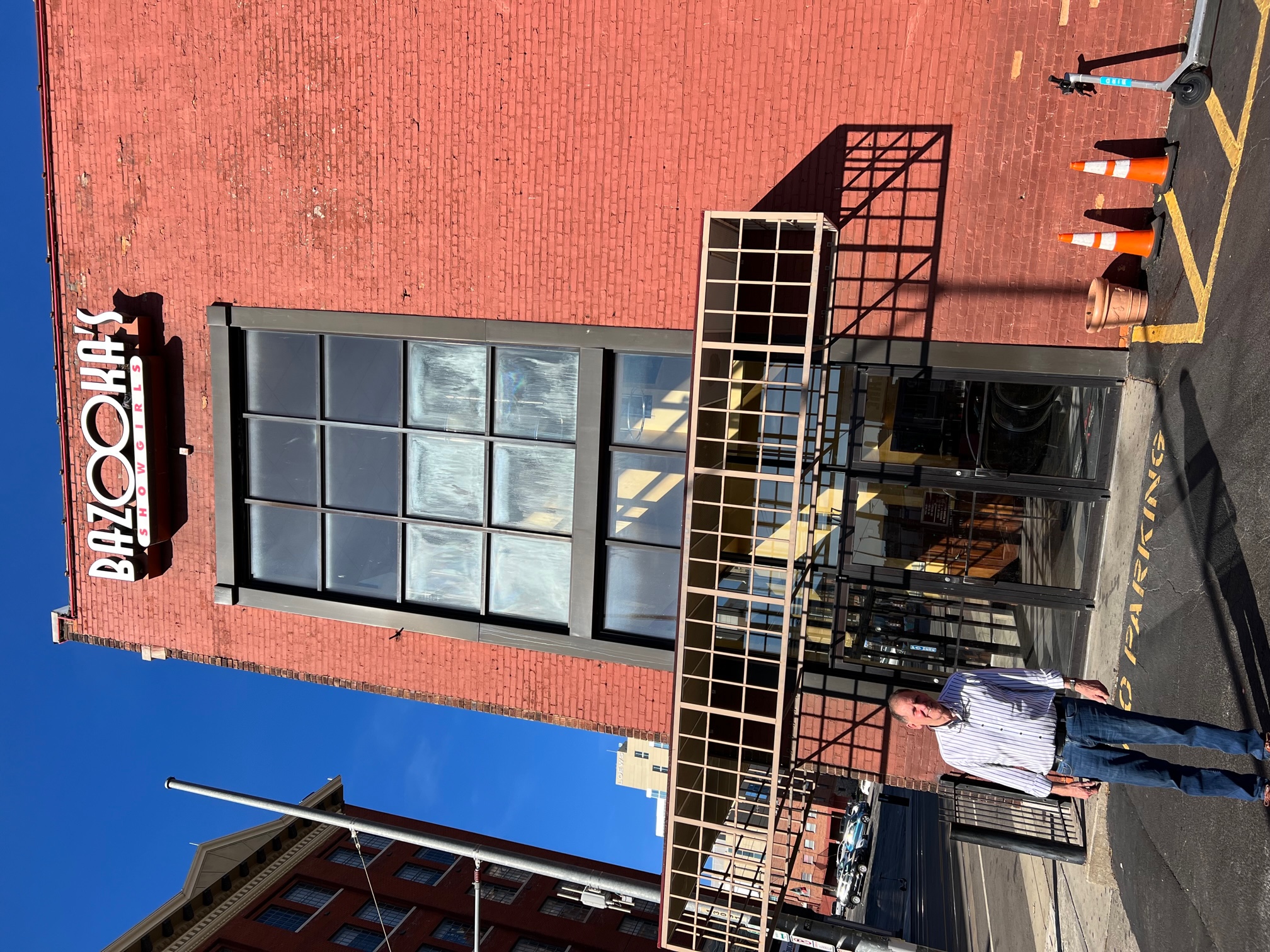
WAITT: When you bought this building, did it have the parking already? That’s always a concern with a downtown location.
SNOW: That’s one of the reasons we bought this particular building. We have parking here, and another parking lot a half block away.
WAITT: You have to be loving the Kansas City Chiefs and Patrick Mahomes right now. They are putting Kansas City on the map.
SNOW: I do. And Taylor Swift hasn’t hurt us any either, has she? The Chiefs are always good for our business. Home games are great. Depending on what out-of-town team is playing here, sometimes we get a lot of out-of-town guys, and that’s great. But one caveat about out-of-town sales is that Wednesday night used to be our third-biggest night, because all the businessmen came to town on Monday to do their business. They would fly or drive back on Thursday, so Wednesday night was their party night. COVID destroyed that business. All that business is done on Zoom now.
“I’m very low key. I’ve always thought that , if you put your head up, it’s going to get chopped off in some way.”
WAITT: Do any of the Chiefs come into the club?
SNOW: Yes, they do, but I can’t tell you who.
WAITT: What is your family situation?
SNOW: I’ve been married 57 years. I have two adult daughters, no grandkids.
WAITT: So they didn’t follow you into the business?
SNOW: Both my daughters are business professionals in social work. My youngest daughter is a clinical social worker at a psychiatric crisis center, and my other daughter is an executive at Children’s Mercy Hospital over the behavioral health section.
WAITT: So what are your succession plans?
SNOW: I guess I’ll just stop doing it and sell. Well, a couple of years from now.
WAITT: When not working, what do you do for fun?
SNOW: I go to my lake house. I fish. My daughters come down.
WAITT: What else?
SNOW: I’m a big reader. I’m a writer. I write short stories. I’ve been doing it ever since I was a little kid.
WAITT: You’re in great shape. What do you do?
SNOW: I go to the gym four days a week. I don’t eat red meat anymore. I just eat fish.
WAITT: Were you ever a smoker or a drinker?
SNOW: Oh, God, I was a huge smoker and a pretty big drinker. I quit all that in my 50s. I quit smoking in 1998. I still drink a little bit, but I quit pounding them down. Yeah, I’ve slowed down a lot.
WAITT: When I spoke to Bryant, I asked him what you did for fun, and he said he had no idea, even though he’s been your attorney for over 40 years. Do you keep your personal and business life separate?
SNOW: I’m very low key. Which is why I was enormously surprised that you even called me for this interview. I’ve always thought that, if you put your head up, it’s going to get chopped off in some way. So my private life is completely separate from my business life. But my business life consumes my whole week, you know.
WAITT: Last question. Where do you see this industry 10 years from now?
SNOW: I don’t see it changing. I don’t think there’s any automation or artificial intelligence that’s going to replace us. I still see us just plugging away.
* * *
Next issue, the two brothers who transformed the Dallas adult nighctlub market: Duncan and Scott Burch.
















